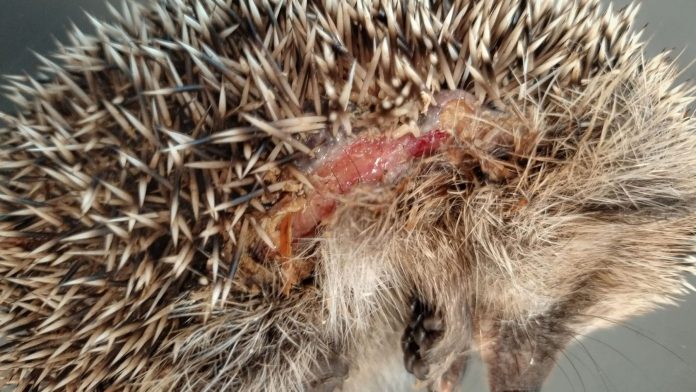Robotic lawn mowers are practical. After all, they tend to the lawn at night. But this luxury could come to an abrupt end.
Contact with the razor-sharp blades of a robotic lawnmower can result in serious cuts or even death for hedgehogs. Scientists at the Leibniz Institute for Zoo and Wildlife Research (Leibniz-IZW) are calling for stricter requirements for manufacturers. The devices are associated with a lot of suffering and pain for hedgehogs. “We are calling for binding, Europe-wide safety tests, similar to crash tests for cars,” said Anne Berger from Leibniz-IZW.
Since September 2022, she and colleagues have examined 370 documented cases of cuts on hedgehogs nationwide. Almost half of the animals found and reported (47 percent) did not survive the injury but had to be euthanized or died during care.
High number of unreported cases
In collaboration with hedgehog rescue stations, the Leibniz-IZW collects finds of hedgehogs with cuts that can be traced back to robotic lawnmowers. The number of unreported animals that were not reported or not even found is probably high. Many hedgehogs suffered for days before they died. “Such animal suffering is prohibited by law as long as there are alternatives that do not cause animal suffering,” says Berger.
Hedgehogs do not run away from danger, but rather remain as still as possible, as the researchers explain. Small hedgehogs in particular are at risk. “If they are run over and injured by the robots, they silently seek the protection of hedges and bushes – if they can – so as not to attract the attention of other predators, for whom they would then be easy prey.” That's why people often don't even notice the suffering in their garden.
Test results on robotic lawnmowers
Berger's team demands that robotic lawnmowers should be clearly visible to customers with test results showing how dangerous they are to hedgehogs. “Buyers can then decide for themselves whether to buy the devices that are more dangerous for hedgehogs,” said Berger. She and her colleagues are currently working on dummy hedgehogs that could be used in such tests.
Another demand from the scientists: devices that only operate during the day. “This is relatively easy to implement and a large proportion of accidents could be avoided. Politicians need to build up more pressure here,” said the scientist. Most accidents involving hedgehogs occurred at night because the animals are nocturnal.
According to Leibniz-IZW, the population of the hedgehog (Erinaceus europaeus) is declining. In 2020 he was placed on the early warning list of the Red List for Germany.


